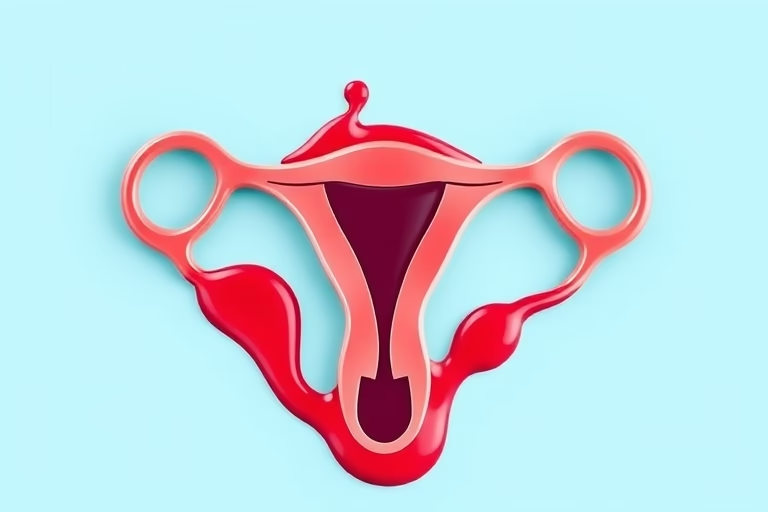Understanding Menstruation
Menstruation is a natural biological process that occurs in most women of reproductive age. It typically occurs on a monthly cycle and involves the shedding of the uterine lining when no pregnancy has occurred. The process is governed by hormones, including estrogen and progesterone, and usually lasts between three to seven days. The onset is marked by various physical and emotional symptoms, which can vary from person to person. Common symptoms include cramping, bloating, mood swings, and breast tenderness. Understanding this cycle is essential for overall reproductive health.
Understanding Implantation Bleeding
Implantation bleeding refers to light spotting that occurs when a fertilized egg attaches itself to the uterine wall. This usually occurs roughly six to twelve days after conception. Unlike menstruation, which is part of a monthly cycle, implantation bleeding is typically much lighter, shorter in duration, and does not follow the regular cycle. Women may experience cramping similar to menstrual cramps but usually milder. Recognizing this phenomenon can be crucial for those trying to conceive or monitoring their reproductive health.
Differences between Menstruation and Implantation Bleeding
Understanding the differences between menstruation and implantation bleeding is critical. Here are key distinctions:
- Timing: Menstruation occurs approximately every 28-35 days, while implantation bleeding takes place approximately one week after a missed period.
- Flow: Menstrual blood is usually heavier and may contain clots. Implantation bleeding is generally very light.
- Duration: Menstrual bleeding lasts several days, whereas implantation bleeding can last only a few hours to a couple of days.
- Color: Menstrual blood is typically a bright or dark red, while implantation bleeding may appear pinkish or brownish.
Symptoms of Menstruation
During menstruation, many women experience various symptoms which can differ in intensity and type. The following are commonly reported:
- Abdominal Cramping: Caused by contractions in the uterus.
- Headaches: A hormonal contribution can trigger migraines or tension headaches.
- Bloating: Water retention can make the abdomen feel swollen.
- Mood Swings: Hormonal changes can affect emotions and mental state.
- Breast Tenderness: Increased sensitivity due to hormonal fluctuations.
These symptoms can sometimes impact everyday activities, and many women seek remedies to alleviate discomfort.
Symptoms of Implantation Bleeding
The symptoms associated with implantation bleeding can be confusing since some may mimic menstrual symptoms. The most common signs include:
- Light Spotting: Typically pinkish or brown discharge.
- Mild Cramps: Usually less intense than menstrual cramps.
- No Clots: Implantation bleeding doesn’t involve blood clots.
- No Other Symptoms: Other swelling or mood changes generally do not accompany implantation bleeding.
For those trying to conceive, the appearance of such symptoms can signal a successful implantation.
When to Consult a Healthcare Professional
Identifying whether you are experiencing menstruation or implantation bleeding is important but can also be complicated. It is advisable to seek medical assistance if you notice any of the following:
- Heavy Bleeding: Soak through a pad or tampon in an hour.
- Severe Pain: Intense cramping or pain that does not subside.
- Unusual Discharge: Foul-smelling or distinctly colored discharge.
- Extended Duration: Bleeding that lasts longer than a typical period.
Consulting a healthcare provider can assist in addressing any concerns regarding your reproductive health.
Prevention and Management of Menstrual Symptoms
Managing and preventing menstrual symptoms can help ease the discomfort associated with menstruation. Here are some effective management strategies:
- Regular Exercise: Engaging in physical activities can alleviate cramps and improve mood.
- Balanced Diet: Eating foods rich in omega-3 fatty acids, vitamins, and minerals can help regulate hormones.
- Hydration: Staying hydrated can reduce bloating and tension.
- Stress Management: Using techniques such as meditation, yoga, or deep breathing can mitigate emotional swings.
Implementing these strategies may significantly improve overall comfort during menstruation.
Home Remedies for Implantation Bleeding
While implantation bleeding usually requires no medical intervention, some home remedies could provide comfort:
- Warm Compress: Applying heat to the lower abdomen may ease cramps.
- Herbal Tea: Certain herbal teas may promote relaxation and comfort.
- Rest: Taking time to relax and listen to your body can help manage symptoms.
While home remedies are beneficial for comfort, it is still essential to consult a professional if you have concerns about the bleeding.
Final Thoughts
The difference between menstruation and implantation bleeding is crucial for understanding women’s health. Menstruation is a predictable monthly event influenced by hormonal cycles, while implantation bleeding is a unique sign that may indicate pregnancy. Knowledge of how each process works can empower women to make informed choices about their reproductive health.
Recognizing the symptoms of each and understanding the differences will assist women in identifying their body’s signals and in addressing any health concerns effectively. While both processes may involve bleeding, the nature and timing of this bleeding can provide valuable insights.
Should there be any confusion or concern, consulting with a healthcare professional is always a wise decision, ensuring that women receive the necessary guidance and support.
Frequently Asked Questions
- What are the common signs of implantation bleeding? Implantation bleeding typically presents as light spotting that appears a week before your expected period.
- How long does implantation bleeding last? It usually lasts a few hours to a couple of days.
- Can you have heavy bleeding during implantation? No, implantation bleeding is typically very light; heavy bleeding is usually a sign of menstruation.
- Should I take a pregnancy test after experiencing implantation bleeding? Yes, taking a test after your missed period can provide conclusive results.
- What if I experience pain with implantation bleeding? Mild cramps are normal, but severe pain may require medical consultation.
Further Reading
What Type of Psychotherapy Is Best for Anxiety?







